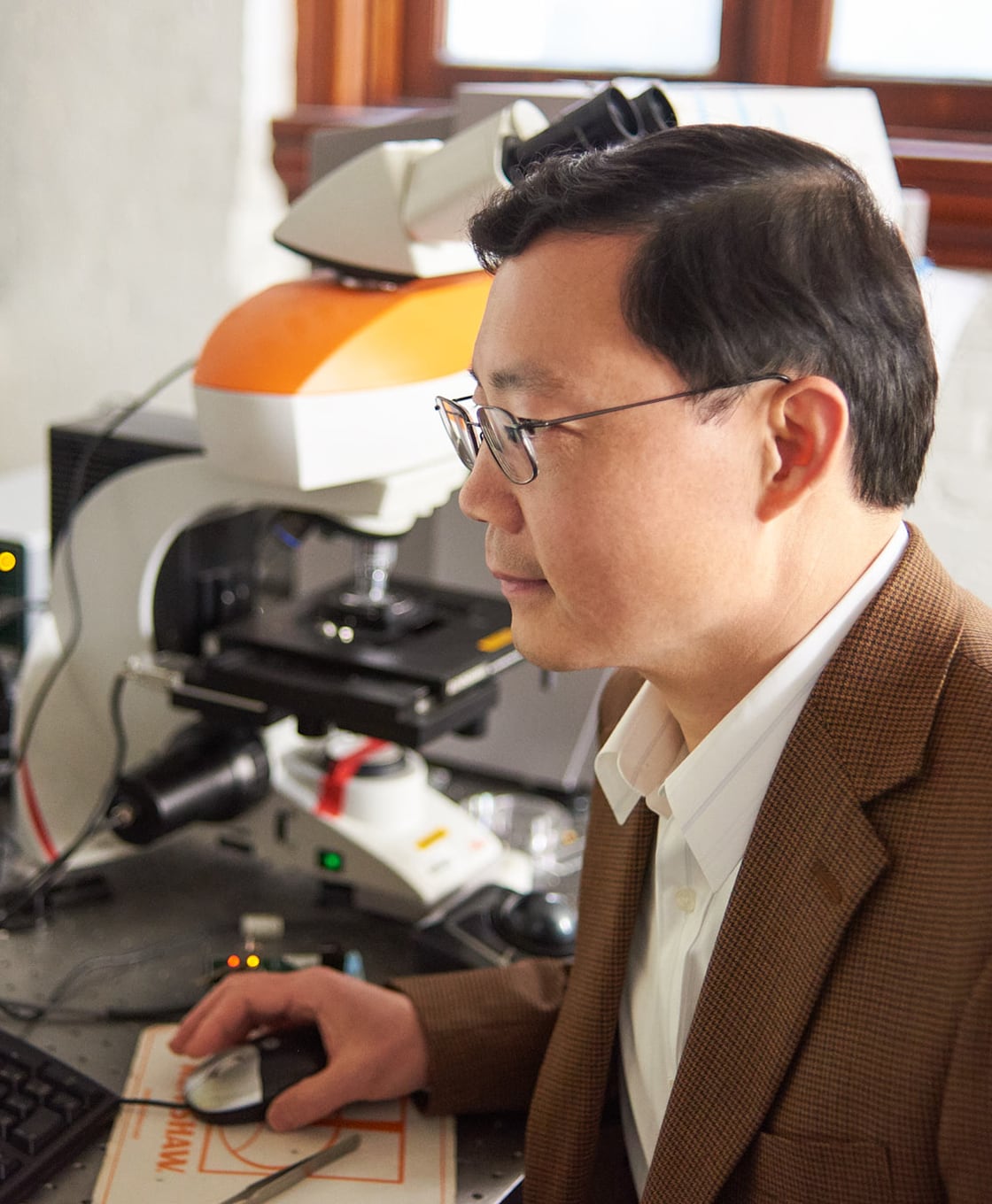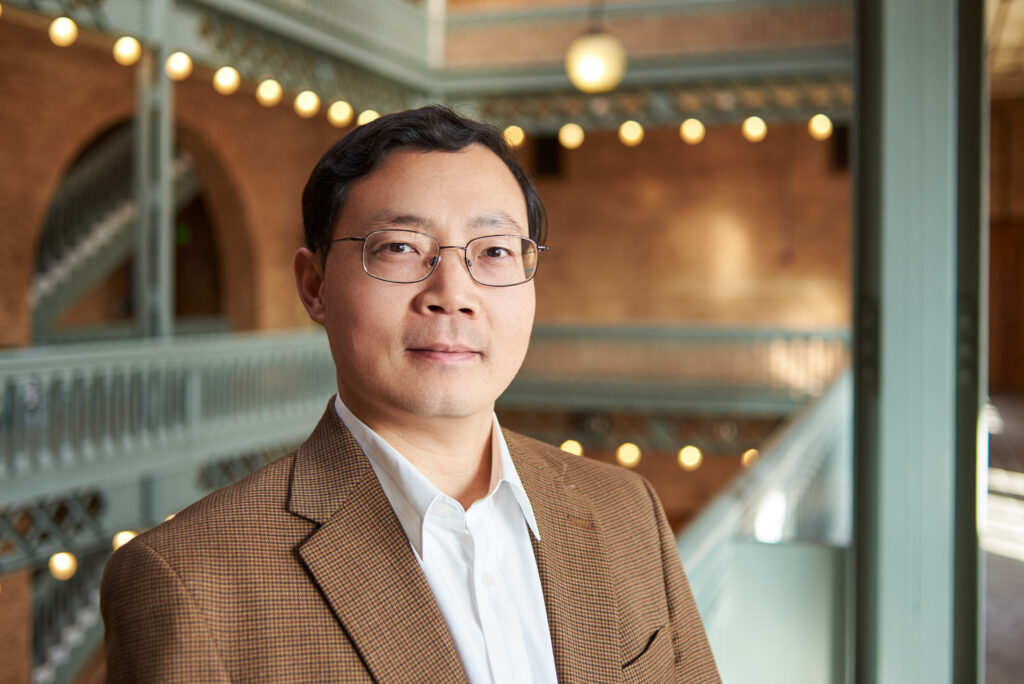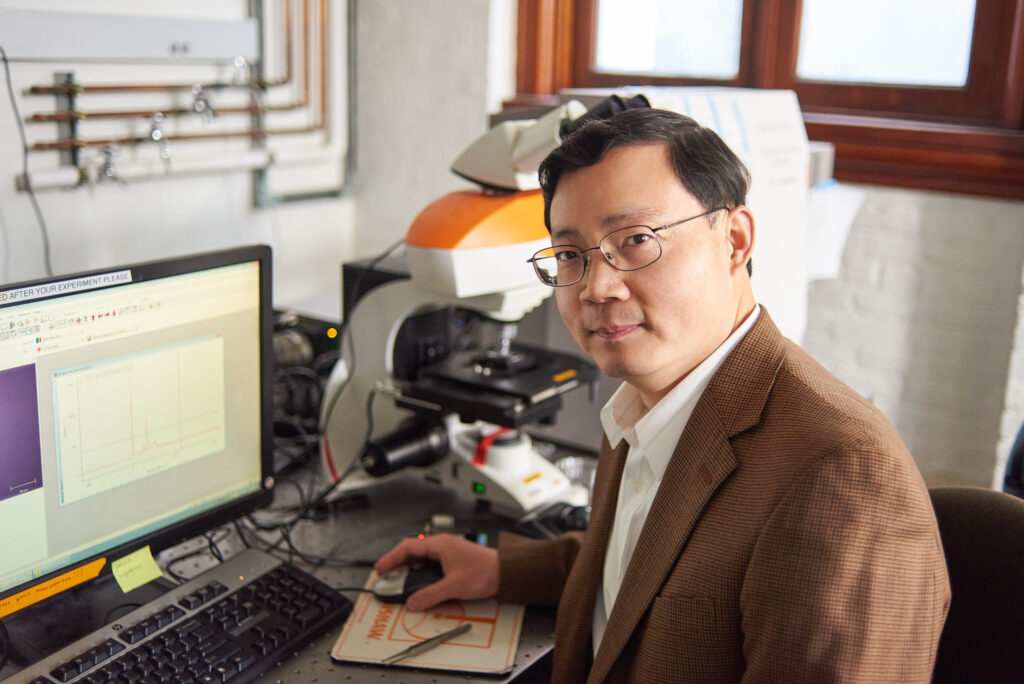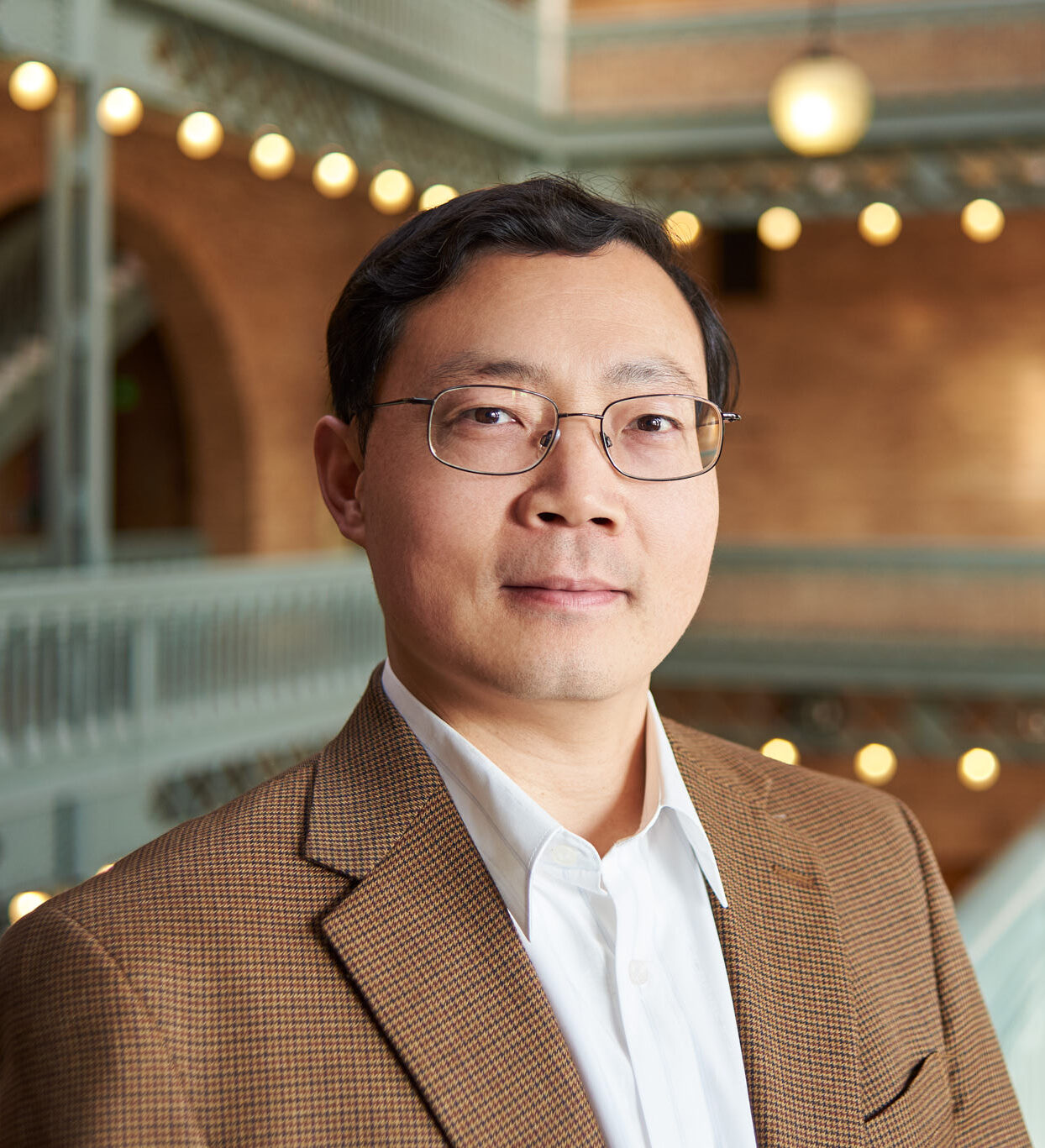
Entrepreneurial Journeys
Faculty FellowsSolving Real Problems: A Bakar Fellow’s Path from Research to Entrepreneurship
by: hannah haas
Background
Dr. Junqiao Wu is a professor in the Department of Materials Science and Engineering at UC Berkeley. He also serves as the chair of an interdisciplinary PhD program called Applied Science and Technology and holds a joint appointment as a faculty scientist in the Lawrence Berkeley National Lab.
Dr. Wu grew up in China and earned a bachelor’s degree at Fudan University in Shanghai and a master’s degree at Peking University in Beijing, both in physics. Later, Dr. Wu received his PhD in Applied Science and Technology from UC Berkeley. He then completed postdoctoral training in physical chemistry at Harvard University. In 2006, Dr. Wu returned to UC Berkeley as a faculty member. Since then, he got his tenure and became a full-time professor. Currently, Dr. Wu advises a research group of about twelve PhD students and postdocs. His main lab is in the basement of Hearst Mining Building on UC Berkeley’s campus.

Motivation
Dr. Wu was interested in physics even as a child. While seeking out PhD programs, he wanted to apply his knowledge in physics to real world problems. At the time, UC Berkeley did not have an Applied Physics program so Dr. Wu applied to the Applied Science and Technology (AS&T) program. Additionally, he applied to the Berkeley Fellowship and won. This prestigious fellowship paid his tuition and stipend. Following this program, he did postdoctoral training with Professor Hongkun Park in the Chemistry Department of Harvard University. These educational opportunities allowed Dr. Wu to learn a lot from different facets of science including physics, material science, chemistry, and physical chemistry.
During the third year of his PhD program, he realized that he would enjoy a career in teaching and research rather than an industrial career. Dr. Wu loves being a professor at UC Berkeley. It provides him freedom and fulfills his curiosity. He is able to make discoveries, teach younger generations of scientists, and interact with both graduate and undergraduate students on a daily basis. Dr. Wu often feels that he learns more from his students than they learn from him. Similar to his love for his job, Dr. Wu feels grateful to be living in the Bay Area, especially after enduring icy winters on the east coast.
In order to find potential topics of research, Dr. Wu considers three factors: funding availability, his interests, and his capability. All of these factors evolve over time, so beginning a new project can become a challenging endeavor. He believes that successful projects combine practical and intellectual values.
Area of Research
Dr. Wu’s research interests include semiconductors, nanotechnology, energy materials, condensed matter physics and materials science. In 2018, Dr. Wu won the first phase of the Bakar Project: the Bakar Spark Funds. A few months ago, he won the second phase: the Bakar Prize. Using the Bakar Spark funds, Dr. Wu’s group has developed three new technologies, published papers, and submitted patents. Using funds from the Bakar Prize, they hope to refine and scale up their products for real life application. The three technologies that Dr. Wu’s group has developed are infrared camouflage and decoy, thermal imaging sensitizer, and smart radiative cooling; all three utilize vanadium oxide. His group plans to commercialize all three technologies, but the second and the third will probably have a larger market, because the first is more limited to military applications. Results from the lab’s research help to solve realistic problems, which enables commercialization.
Where it Leads

The process of commercialization produces many new challenges. Scaling up products while manufacturing that product cost effectively are two technical challenges that must be considered. Other obstacles arise including fundraising and business management. Dr. Wu’s team has already registered a startup company called DeepRed technology. Their ultimate goal is to commercialize their products and create new markets related to three fields: microelectronics, biomedicine, in-building inspection, as well as efficient roof cooling. Although Dr. Wu has limited entrepreneurial experience, he has been able to learn a lot from other entrepreneurs, projects, and business incubators in the UC Berkeley community.
Dr. Wu is looking forward to the continual development of his research projects and business ventures. He feels extremely grateful for the ongoing support from his family and friends, students, collaborators, and funders, including the Bakar Program.
